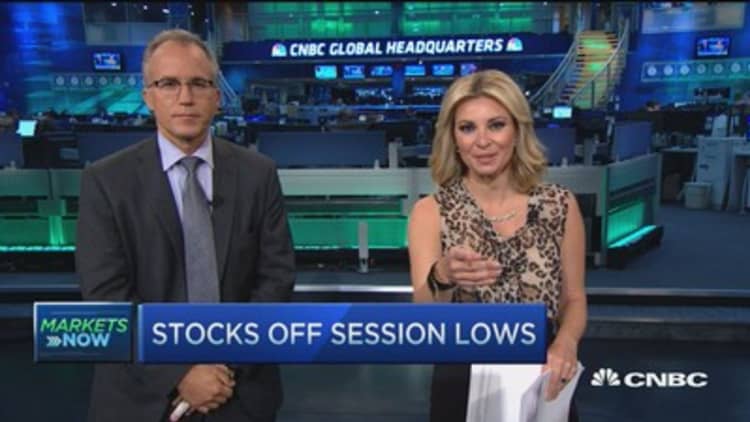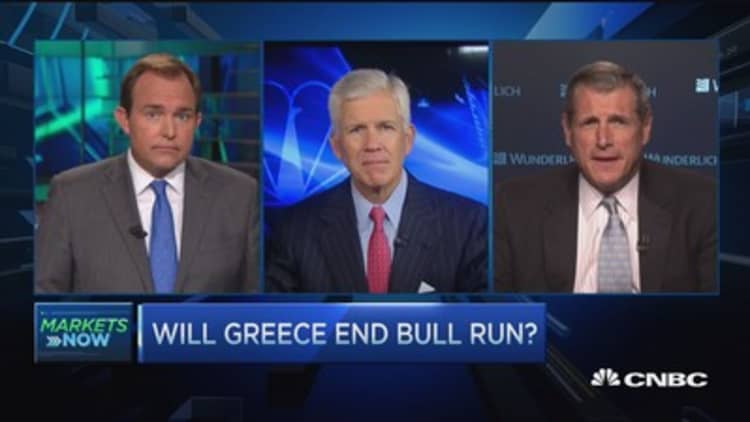
Investors chasing easy money trades in Europe may be missing an opportunity to take advantage of a U.S. economy on firmer footing, Brian Belski said Monday.
While Europe saw a nice rally this year, it still faces structural problems that the United States has already addressed, said the chief investment strategist at BMO Capital Markets. Now may be the time for investors to go against the grain and recalibrate their portfolios toward U.S. stocks, he said.
"The consensus is to leave the U.S., right? Consensus has been wrong by the way for the last six years on this entire stock market, so we'd be a little cautious in terms of just throwing out the baby with the bathwater with respect to starting to turn negative on the U.S.," he told CNBC's "Power Lunch."
Read More Wall Street firm's portfolio up 29% in 18 months
Picking stocks is not easy, so investors should not necessarily go after the easy trade and follow quantitative easing programs in Europe and Japan, Belski said. The European Central Bank and the Bank of Japan are currently buying up bonds in order to keep interest rates low, spur lending and stoke economic growth.
Following years of such programs at home and abroad, Belski said an entire generation of investors have been reared to buy stocks because interest rates are going down.
"They don't understand the fundamental circle of life, meaning that interest rates improve because the economy is improving, the stock market is going up," he said.
The Federal Reserve is widely expected to begin raising interest rates from zero later this year or earlier next year.
Read More This would be scary enough to give Fed pause
Belski said the S&P 500 could reach 2,250 by the end of the year, and BMO's favorite sector is financials. The space is seen benefiting from rising interest rates, which help banks' deposit-based businesses make money.
The S&P 500 is up about 1.3 percent this year at 2,085.

The market is biding time after a significant run over the last five years, Art Hogan, chief market strategist at Wunderlich Securities told "Power Lunch." The fact that the has spent much of 2015 at the same level is a sign that stocks are entering correction.
The shift in sector leadership from dividend-yielding stocks to financials is a sign of correction through rotation, as well, said Hogan.
"I think that some of the dividend darlings are coming under pressure, like utilities and the consumer staple group," he said. "That's probably good news too if we're going to have a rising interest rate environment."
The Greek debt drama is ratcheting up market noise and giving investors an excuse to take profits, said Hogan.
Greek Prime Minister Alexis Tsipras called an emergency meeting Monday after talks broke down between his country and European negotiators. Greece is seeking to unlock bailout funds in exchange for reforms ahead of a scheduled debt payment at the end of the month.
Read MoreDon't sweat a 'Grexit', opportunity abounds: Strategists
"While that's happening, it's very hard to get investors to focus on the markets and fundamentals, which are actually improving this particular quarter," he said.
Investors are experiencing a sort of bull market fatigue after watching stocks climb ever higher, only to trade sideways this year, said Michael Farr, president of Farr, Miller & Washington. But the relatively muted stock market performance this is not necessarily a bad thing, he added.
"A sideways market after this kind of a rally is not a bad thing at all, particularly if you let earnings and the fundamentals build underneath a new high market level," he told "Power Lunch."


